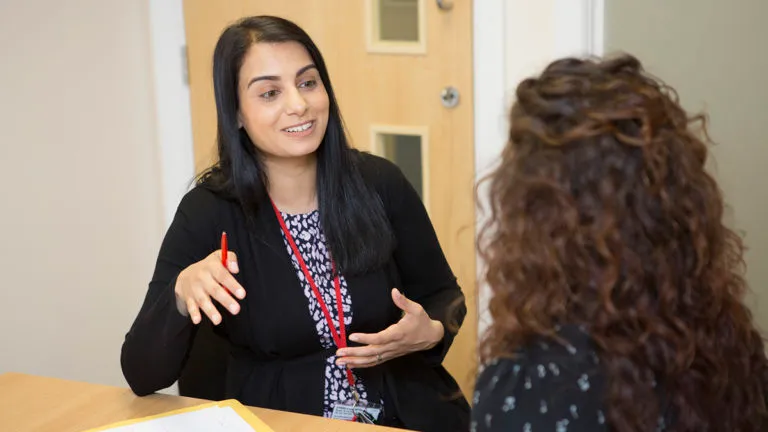International Women’s Day: we must see an end to women in housing poverty
Published: by Steph Kleynhans

International Women’s Day is a brilliant celebration of the women we all know and look up to, including our women politicians. But as well as those with a high-profile, we should also be celebrating the thousands of women, often hidden from view, who are keeping their families going despite facing homelessness and destitution.
Every day in the UK, women are waking up in poverty because they can’t cover the costs of their rent. This is no accident. The housing benefit cuts implemented by successive governments are disproportionately impacting women, as government impact assessments warned they would.
Our analysis shows that both the freeze to Local Housing Allowance (housing benefit for private renters) and the household benefit cap (which deducts housing benefit when households hit the cap) are disproportionately hitting women and children, causing homelessness, destitution and debt.
Freeze to local housing allowance
The freeze to Local Housing Allowance (LHA) rates is pushing more and more families into rent arrears and eventual homelessness.
Since 2011, the LHA rate has been designed to restrict claimants to only the cheapest third, or 30th percentile, of the local private rental market. But because of various cuts to LHA expenditure since 2012, and then a four-year freeze of rates since 2016, they’ve not kept pace with rising rents.
At the same time, since 2012, rents across England have risen by 14%. This has created large shortfalls all across England between the amount of housing allowance families can claim and the cost of renting. Our new research shows that in this coming year (2019-20), LHA rates will not cover the rent for a two-bedroom property in the bottom third of the market in over 9 out of 10 areas in England. Shortfalls are large (often over £100 a month) and can’t be budgeted around. In other words, households who need LHA to cover the rent are finding it no longer does in nearly every area of the country.
Women are disproportionately hit by this policy. Department of Work and Pensions (DWP) figures reveal that six in every 10 LHA claimants are women and that 95% of single parents receiving housing benefit are mothers.
Household benefit cap
The household benefit cap puts limits on the amount of income households can receive in benefits. When first introduced, the cap was set at £26,000 but that’s since been lowered to £23,000 in London and £20,000 across the rest of the UK.
But these caps do not take into account the high and variable costs of renting a home in England. Our analysis shows the cap is now so low that families cannot avoid it in 92% areas of England, so it’s impossible to move to a cheaper area (as government suggests) to avoid the cap.
Again, DWP statistics show more than half of households affected by the benefit cap are single women with children below school age – the very same people who face large barriers to work.
Government knew women would be hit
Women being hit hardest by housing benefit cuts isn’t an unintended consequence of government policy. We knew this would be the case. The government’s impact assessments of the benefit freeze and benefit cap both warned these policies would disproportionately affect women:
- The impact assessment on the benefit freeze states that women are more likely to be affected than men.
- The impact assessment for the benefit cap suggested that around 66% of claimants affected by the cap would be single women, whilst only around 13% would be single men. The government predicted that most of the single women affected were likely to be lone parents.
This is probably unsurprising when government statistics show that 95% of single parents receiving housing benefit are female.
If housing benefit is then both frozen and capped when the total income in benefits is over the capped limits, then of course these policies are going to detrimentally affect women. We are seeing mothers hit by the benefit cap who have just 50p a week in housing benefit to spend on the rent for a family home.
Of course, this is nowhere near enough, so they become destitute and then councils have to pay for their housing costs. We regularly see mothers who go without food and other essentials to make up shortfalls in LHA and provide the basics for their children.
Time to tackle this discriminatory policy
We’re fighting to end ‘no DSS’ practices, which ban people from even being considered for tenancies if they are in receipt of benefits. Looking at the demographic who claim housing benefit, there is evidence to suggest that this discrimination disproportionately affects certain groups – women and people with disabilities. You can join us in this fight by signing our petition.
But on International Women’s Day we’re calling on Prime Minister Theresa May and Work and Pensions Secretary Amber Rudd to tackle the burning injustice of women bearing the brunt of housing benefit cuts. They must abolish the benefit cap, lift the freeze on LHA rates and raise them back to at least the 30th percentile. This will ensure thousands more women are able to afford their rents and avoid the destitution, poverty and homelessness that these cuts are causing.